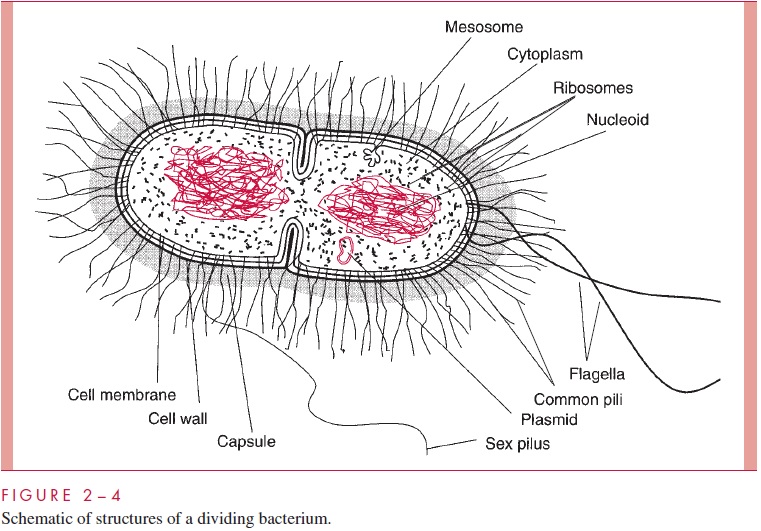Chapter: Medical Microbiology: An Introduction to Infectious Diseases: Bacterial Structures
Plasmids - Bacterial Structures
Plasmids
Many bacteria contain small, usually circular, covalently closed, double-stranded DNA molecules separate from the chromosome. More than one type of plasmid or several copies of a single plasmid may be present in the cell. Many plasmids carry genes coding for the production of enzymes that protect the cell from toxic substances. For example, antibiotic resistance is often plasmid determined. Many attributes of virulence, such as production of some pili and of some exotoxins, are also determined by plasmid genes. Some plasmids code for production of a sex pilus by which they promote cell conjugation and thereby accomplish their own intercellular transmission. They are thus “infectious,” are nonhomologous to the bacterial chromosome, and provide a rapid method for acquisi-tion of valuable genetic traits.

Related Topics